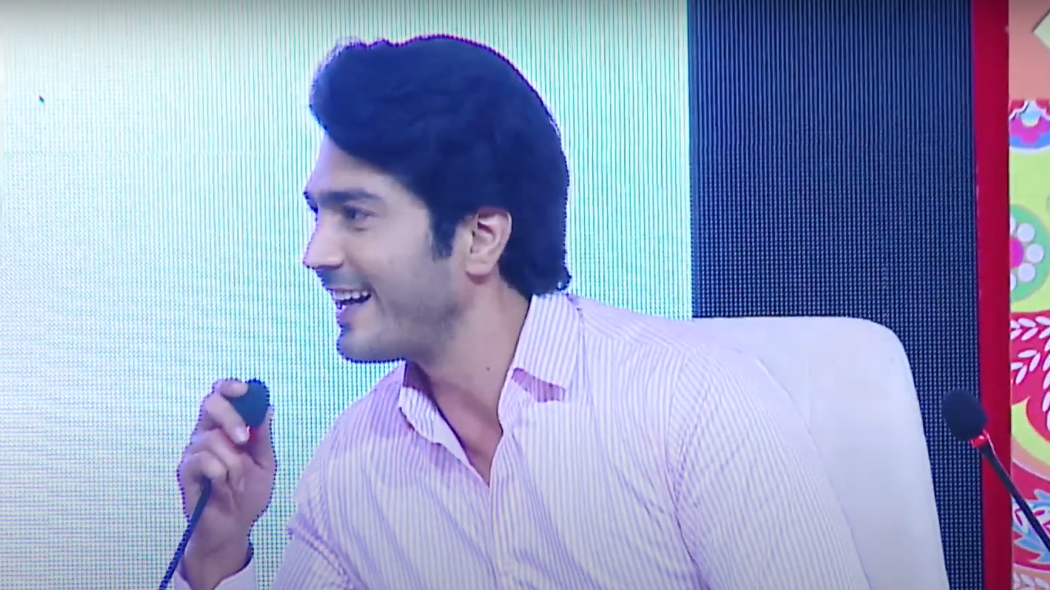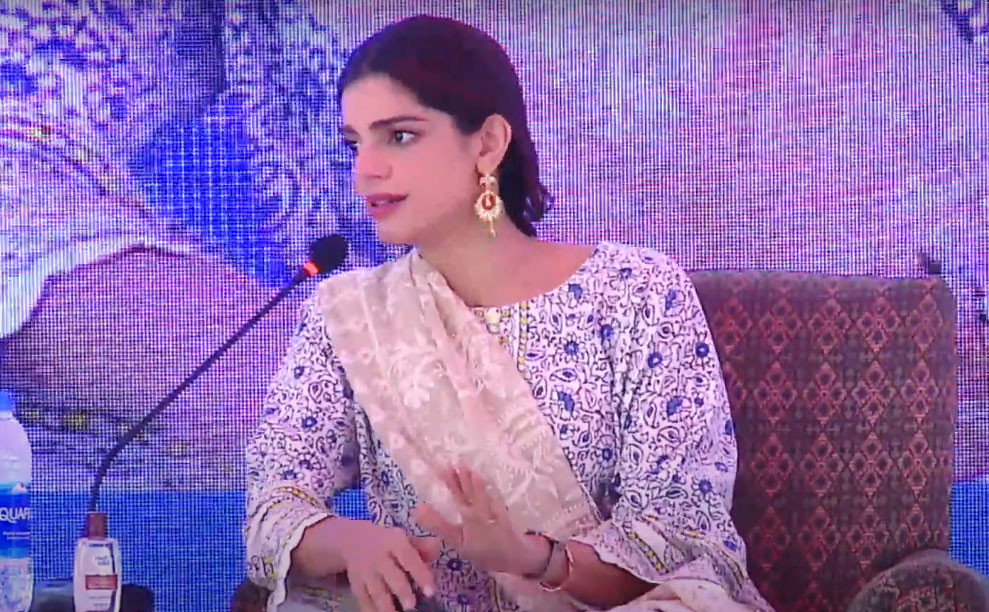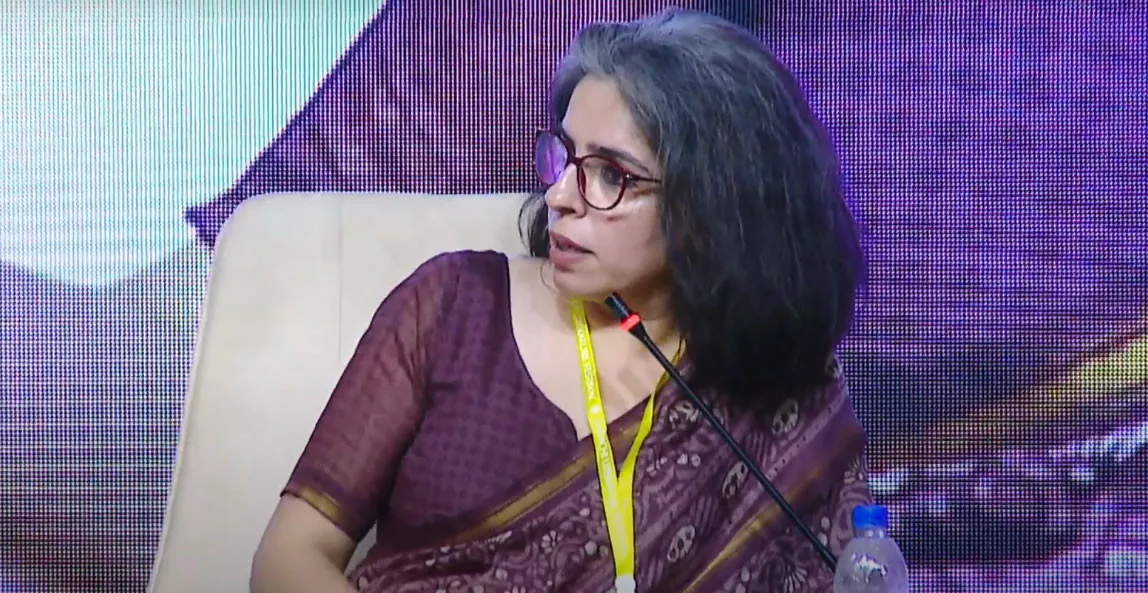Sinf-e-Aahan is a contradictory title in itself, I don't need to be 'Aahan' to be strong: Bee Gul
Audience tried to hold stakeholders accountable for the portrayal of an ‘abusive society’ on screen at KLF
KARACHI:"I am not someone who would fight for my cousin brother’s love and commit suicide over it. When will I be represented on screen?” a young woman asked a panel of actors, filmmakers and writers at the 14th Karachi Literature Festival (KLF) – and several members in the audience related to the sentiment.
The annual festival had two panel discussions on the drama industry; ‘Pakistani Drama: Kahan se aya aur kahan gaya’, on Saturday, featuring Nadeem Baig, writer Bee Gul, actors Shamim Hilaly, Azra Mansoor, Shahzad Sheikh and Kubra Khan. ‘From Silver Screen to Mini Screen: Goldmine of OTT Media’ on Sunday showcased a conversation between Faseeh Bari Khan and Sanam Saeed.
Much like Pakistani dramas, both sessions relied on predictable tropes. The attendees tried to hold stakeholders accountable for the portrayal of an ‘abusive society’, as the panel blamed run-of-the-mill shows and the audience’s lack of taste for the perpetual fall from grace.
“Television is an obsolete medium worldwide. The culture is still prevalent because we divorced ourselves from quality cinema years ago. We still religiously watch the 8 pm dramas and form WhatsApp groups to discuss them,” exclaimed Bee Gul adding that the industry has a huge responsibility with its reach to the masses and should not abuse it.
However, the Raqeeb Se writer affirmed that we’re not creating content for our youth. “The youth of this country has a lot more exposure and we should be ready for it. We should accept that we’re making bad content and we shouldn’t be proud of the work we’re doing,” she said.
Khan, in his session, pointed out that it is TV that teaches women that they’re weak. “What can we say about TV when the people in charge show violence against women and say it increases their ratings?” he asked. They [producers] claim that the target audience for dramas today includes domestic workers and that other women have made the move to Amazon and Netflix for better content.
Gul felt that the extreme switch between either too vulnerable and weak or too strong and independent women characters feels unnatural. “What is this ‘drama’ that we can’t show women as weak and vulnerable but only as strong? With due respect, I think Sinf-e-Aahan is a very contradictory title in itself. I’m a woman and I’m strong and I don't need to be an ‘Aahan’ for that. I’m okay with what I am. We should show more human characters,” she added.
Khan opined that our dramas have become so monotonous now that each actor, storyline, and set, all feel the same. “You can’t even tell the difference, that’s how redundant it has been,” he said. Sheikh, however, blamed the audiences for watching such dramas.
“I’m frustrated that I don’t get good characters or scripts but my conclusion is that the audience decides my fate now. Kuch Ankahi is one of the best dramas today and yet it has low TRPs. So, people are seeing what they wish to see anyway. It's unfortunate because we’ve tried our best to offer different storylines and characters but it's not working and I fail to understand why. I guess people aren't ready for that,” he said.
Strongly disagreeing with Shahzad’s opinion, Baig and Gul chimed in. “In my opinion, it’s unfair to put all the onus on the audience all the time. There are people who like Meray Paas Tum Ho and there are people who like Kuch Ankahi. We should avoid reducing our audience to one complete whole,” said Baig.
Adding to the argument at hand, Gul shared, “Nadeem is right that the art form is diverse and it should be but it's our responsibility to ensure that TV dramas stimulate the audience’s intellect.”
Saeed, too, had similar sentiments and it was her characters in Mera Naseeb and Zindagi Gulzar Hai that made her realise how people see such characters as “role models” and that’s what made her be more careful with projects.

“When I choose a character, it is necessary for them to convey a message. Pakistani women don’t travel much, they aren’t very educated either — they don’t read too many books or see the world outside their homes so they don’t have many tools to learn from — their exposure is limited. But through television, the world opens up in front of them, they get a new perspective, they live vicariously through television,” she said.
“It is our social responsibility to do good, to show good, to bring about change. I realised our youth has no role models, there are no role models left anymore. It is very important because Pakistan has such a high population of young people — we need to have male and female role models,” she said, adding that this is why she has started working on web series for OTT platforms because there’s less censorship and more freedom to explore quality content there.
Kubra, speaking on behalf of other actors, added that they want to work for shows like Churails and Mrs. & Mr. Shameem but Zee5 got banned as soon as Churails was released. “If you try to do good work here, some political agenda comes forth and ruins everything,” she said.
Saeed shared that although her work cannot be accessed in Pakistan, she needs to satisfy her soul with work that matters. “Our careers just started flourishing when the Pakistani drama industry decided to downgrade its content quality. As an actor, I look for work that’s soul-satisfying – whether that’s here or on an Indian platform.”
A solution to all of this, according to Saeed, is for filmmakers to spend their film budget on making web series for local streaming platforms. “The money that is spent on these series equates to our film budgets. Cinema doesn’t create the same kind of enthusiasm because, with an Rs1,000 ticket, food and drinks, it’s just not affordable anymore. If the ones who have money want to spend it on making films, it may be a big gamble but if they invest the same budget in OTT platforms, maybe there would be some change, and maybe then we could have some good content.”
She concluded by noting that most Zee5 shows that are winning awards are Pakistani. “That means we have the talent. Hopefully, Zee5 is going to create some healthy competition for Pakistan to have more OTT platforms.”
A request that Kubra had for all viewers at the end was to not write off the whole industry based on some poor-quality dramas. “Like the industry shouldn’t write off the audience in one box, the audience shouldn’t write off all dramas as one industry. I agree that we don’t make good content, but once we do, you don’t give it a chance because it is presumed that it’ll be bad.”


COMMENTS
Comments are moderated and generally will be posted if they are on-topic and not abusive.
For more information, please see our Comments FAQ